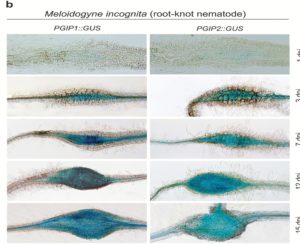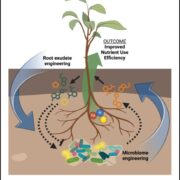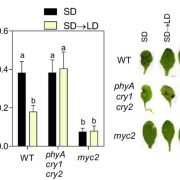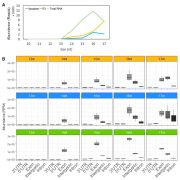Damage-associated signals differentially impact nematode parasitism
 Roots must protect themselves from a diverse range of microbial and animal pests. To accomplish this, plants have evolved sophisticated signalling machinery to detect the presence of these pests or to quickly react to the damage that they cause. In a recent study, Shah et al. identified host receptor proteins that detect the damage-associated release of cell wall components caused by parasitic nematodes. Phenotypic analyses of receptor knockout and overexpression lines demonstrated the importance of these receptors in mitigating the extent to which certain parasitic nematodes could cause damage. Specifically, their expression attenuates infection by cyst but not root-knot nematodes. These results underscore the importance of damage-associated signalling pathways in response to nematode parasitism and suggest strategies to enhance plant defenses against these pests. (Summary by Philip Carella) J. Exp. Bot. 10.1093/jxb/erx374
Roots must protect themselves from a diverse range of microbial and animal pests. To accomplish this, plants have evolved sophisticated signalling machinery to detect the presence of these pests or to quickly react to the damage that they cause. In a recent study, Shah et al. identified host receptor proteins that detect the damage-associated release of cell wall components caused by parasitic nematodes. Phenotypic analyses of receptor knockout and overexpression lines demonstrated the importance of these receptors in mitigating the extent to which certain parasitic nematodes could cause damage. Specifically, their expression attenuates infection by cyst but not root-knot nematodes. These results underscore the importance of damage-associated signalling pathways in response to nematode parasitism and suggest strategies to enhance plant defenses against these pests. (Summary by Philip Carella) J. Exp. Bot. 10.1093/jxb/erx374
Browse the full collection of this week’s highlighted articles









